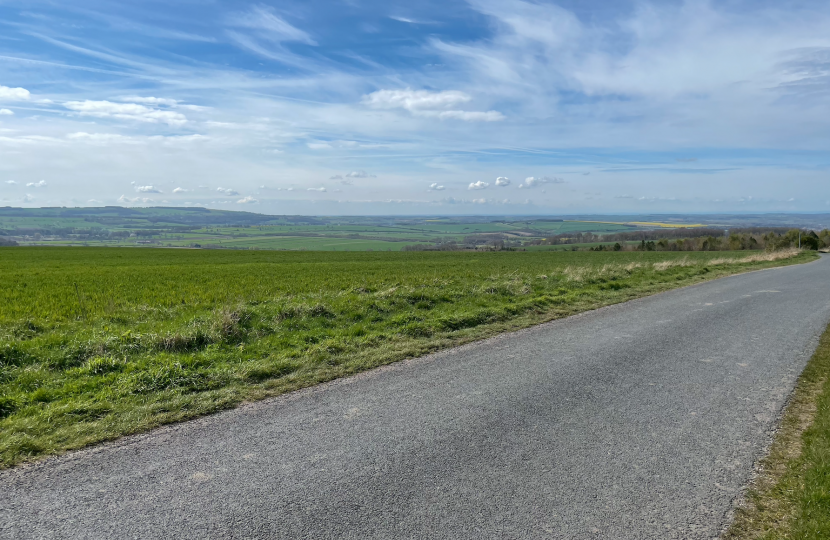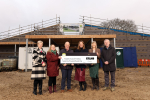
Mobile coverage in rural parts of North Yorkshire has been significantly improved after EE revealed today it has upgraded or built more than 40 masts in the county in the last two years. Five masts have been upgraded in recent months to bring enhanced 4G mobile connectivity to the villages of Chapel-le-Dale, Rievaulx, Blubberhouses, Danby Wiske and Terrington, enhancing connectivity for residents, visitors, local businesses and the emergency services.
Scenic tourist sites like Fewston Reservoir and Ingleborough Mountain – including large parts of the popular Yorkshire Three Peaks route – now have reliable 4G coverage as part of these upgrades. The upgrades also cover transport routes including the A59, A167, B1257, and parts of the East Coast Main Line railway.
Having championed the creation of the Shared Rural Network, I know how essential it is in helping to close the digital divide between urban and rural areas and boost regional economic growth.
This improved mobile connectivity from EE means businesses and visitors in North Yorkshire are now better connected and residents have more options when it comes to working remotely and accessing essential services.
North Yorkshire is England’s largest county, 85 per cent of which is classed as rural or super sparse, and contains two national Parks, the Yorkshire Dales and the North York Moors. To balance the desire for improved mobile connectivity in rural communities with the need to respect the natural landscape, efforts have been made to situate the sleek and compact mobile masts in non-intrusive areas, while providing maximum benefit to the places where people live, work and travel.
Most of the masts have been built or upgraded by EE as part of the Shared Rural Network (SRN)*, a £1 billion initiative to extend 4G connectivity to rural communities, with the aim to cover 95 percent of the UK’s landmass by the end of 2025.
North Yorkshire-based photographer and creator of the popular walking blog www.HikingPhotographer.uk Stuart Hodgson said that improved mobile coverage was a big boost for the entire community.
“Mobile coverage in rural areas like this has been patchy or non-existent in the past, so it's great news to hear about these upgrades,” he said. “Having better mobile coverage in rural areas can encourage more people to venture out to enjoy this great countryside and share photos and videos in real time. That's got to be a good thing in terms of people's general health and wellbeing, but also for local communities and businesses who welcome visitors.”
Mobile connectivity came to the rescue recently when Stuart and a group of hikers were doing the Yorkshire Three Peaks challenge. When a couple of people in the group could not carry on due to injury, they used their mobiles to navigate to the closest recognised safe place and find bus times to get them back to the start point.
He added: “Our phones can now help us follow walking routes and find our way, and even help us identify some of the wildlife and plants along the way. It can also provide peace of mind in case of an emergency. When people come here to walk, particularly for the big challenges like the Yorkshire Three Peaks, being able to share spectacular images with friends and family, and via social media, is now a big part of the day.”
A report in 2021 by an independent rural commission set up by North Yorkshire County Council warned that poor internet and mobile connectivity in rural areas was hindering economic growth and leaving tens of thousands in technology ’notspots’.
The report highlighted that improved connectivity has the potential to boost investment and jobs in sectors such as agriculture and tourism, as well as encouraging younger people to live and work in rural areas.
These upgrades come at an important time for countryside communities as the UK’s mobile providers retire older 3G – and later 2G – networks. 4G connectivity offers remote communities the biggest and most reliable network of any current mobile technology in the UK, which is why EE has expanded its 4G coverage by more than 10,000 square kilometres in the last five years.
Greg McCall, Chief Networks Officer at BT Group, said: “North Yorkshire is England’s largest county and is famous for its rolling dales and close-knit rural communities. These new 4G upgrades will not only mean residents will be able to stay connected to the people and things they love most, but businesses and community groups can use our network to offer new services and experiences to the millions of tourists who visit every year.
“Having upgraded more than 1,600 rural locations so far under the Shared Rural Network programme, EE has gone further than anyone to deliver the far-reaching mobile connectivity that rural communities rely on across the UK.”

